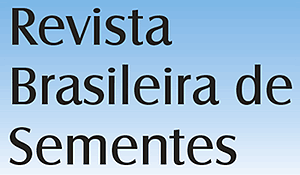The objective of this research was to evaluate the levels of cattle manure in the presence or absence of mineral fertilizer on the yield and physiological quality of coriander seeds, cv. "Verdão" Two experiments were carried out in the Center of Agrarian Sciences of the Paraiba State Federal University (CCA-UFPB), Brazil, in the period October/2001 to February/2002, one in the field and other in the laboratory. The field experiment was conducted to evaluate the seed production and the treatments consisted of five levels of manure (0; 2,0: 4,0; 6,0 and 8kg m-2) and in the presence or absence of mineral fertilizer distributed in randomized complete blocks, with the treatments in a 5x2 factorial design with four replications. In the laboratory, the treatments were also distributed in a 5x2 factorial design, and the randomized complete block design was used with four replications. The seed yield in the presence of mineral fertilizer reached the maximum value (3t ha-1) at the dose of 5kg m-2 manure. In the absence of mineral fertilizer the yield increased with the elevation of the manure levels, reaching the maximum seed yield (3t ha-1) at the dose of 8kg m-2. In function of the levels of manure in the absence of mineral fertilizer, germination and the germination index increased linearly with the increase in the levels, presenting maximum values of 90% and 5.0, respectively, at the maximum dose (8kg m-2). In the presence of mineral fertilizer, the levels of manure provided medium value of 82% for the germination and 4.5 for the germination index with the dose of 8kg m-2. This result demonstrated that the manure by itself provided an increase in germination and seed vigor.
Coriandrum sativum; organic-mineral; fertilization; vigor



